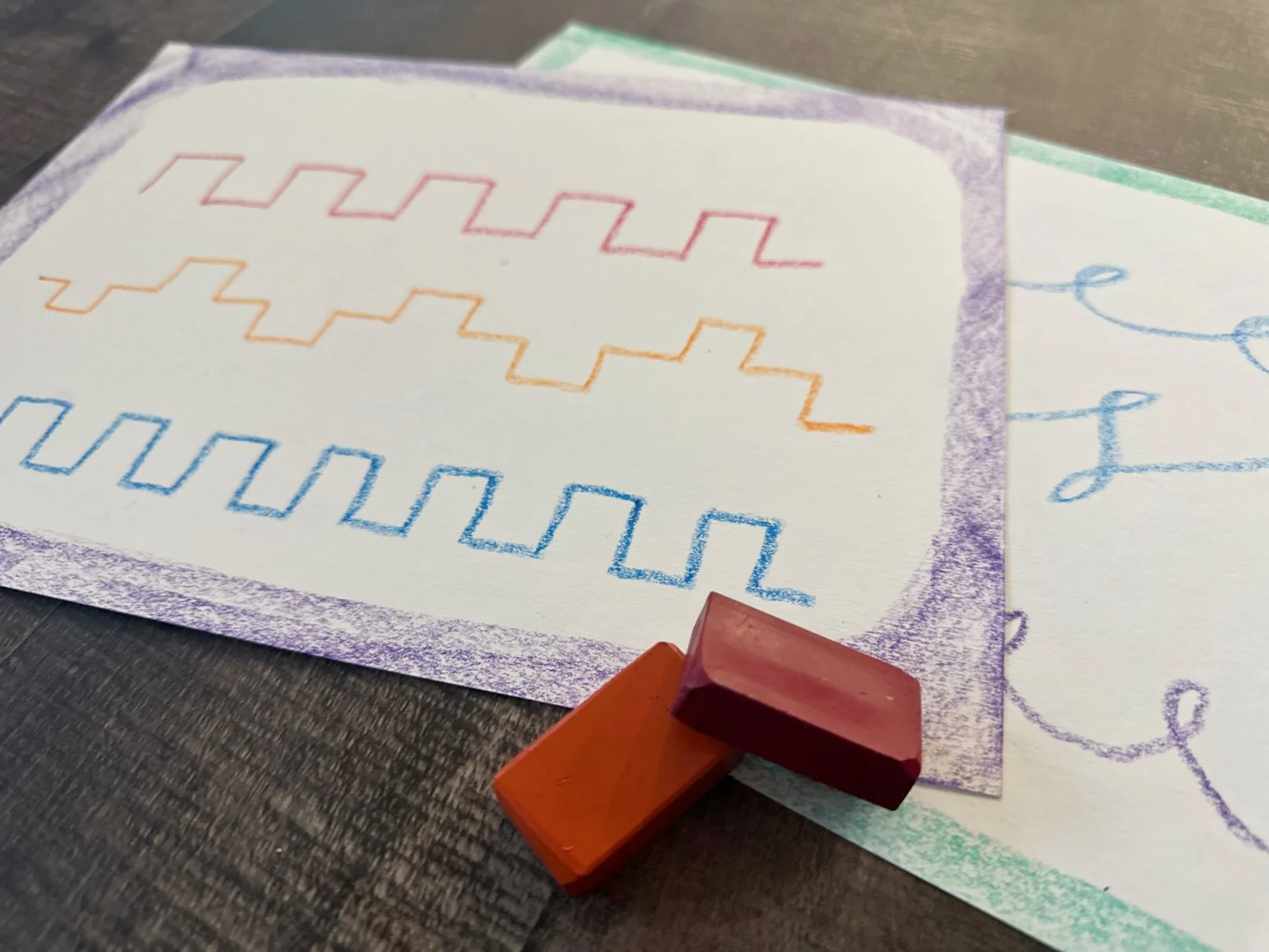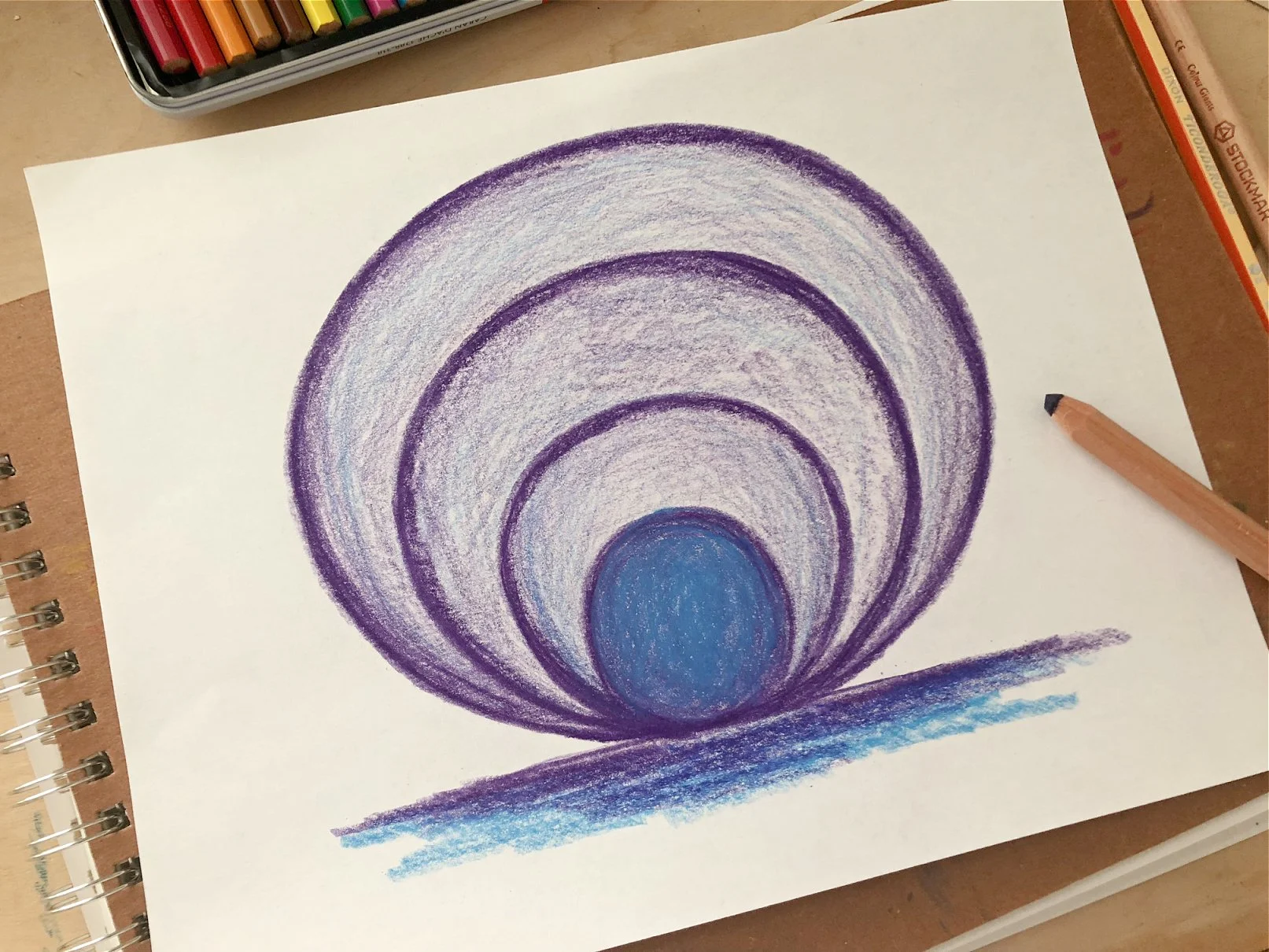When children rush - 3 things to consider
Waldorfish Form Drawing teacher Rev Bowen was recently asked by a caregiver enrolled in the course how to work with a child who appears to be rushing through their work. His reply is relevant regardless of the subject being discussed, and we wanted to share it with the Waldorfish community at large!
There are typically three reasons children rush:
1. They feel the work is far too easy, which is never the complete picture.
2. They find the work too challenging.
3. They have a soul habit that the adults around them have engendered, which is virtually always true.
To this lattermost point, I will just remind us all that our culture is fast-paced, convenience, and results-driven. It is very difficult to foster a practice of care and consciousness in these times--but we absolutely must do so.
Take time to observe a child who rushes through their work- you may be surprised at what you discover!
Let’s take a closer look at these 3 possibilities:
1. If the work is actually easy for the student, I then give great focus to the beauty of the work. It is never enough to be right. We must require the "bright" or "advanced" students to take even greater care to be neat, organized, and even beautiful in what they deliver. This will help them enormously when they reach the point of encountering work that truly challenges them.
Picture the math whiz who can do so much work mentally. Their written work in algebra can be scritchy-scratchy, but they have the mental ability to consistently render correct answers. This child may have a destiny to reach great heights in mathematics. However, this will be hindered in advanced classes--perhaps not until late high school or collegiate studies--if the student was never required to work in an organized way. This is true to some extent for every child in all parts of life. Organization and presentation helps.
2. If they find the work too challenging, it is for us to realize this, and adjust so that the work challenges them in a way that they can reach. It is okay for children to sweat. It is okay for a frustrated child to cry. I have seen both in the classroom and I have seen both of these emotional states overcome with diligence and perseverance. These children learned great lessons about meeting resistance, both inward and outward. They learned that they can sometimes achieve more than they at first believe if only they will try and try again. This is a critical human capacity. Thomas Edison tried thousands of filaments for light bulbs before he found one that would work.
3. This is the most common. It is difficult as teachers and parents to instill a strong habit of conscientious work, a devotion to craftsmanship and quality. It may be that the work is neither too easy nor too difficult, but the student simply does not have the habit of attempting his or her best work. This is where the adult teacher or parent must step into his/her ego.
The adult ego knows what is best. The child will almost always seek the path of least resistance, like water finding a crack in a vessel. It is the adult ego which must be the voice of loving authority. That is the balance – LOVING AUTHORITY. One without the other results in a child who will embody either laziness or tyranny.
During the child's growth, the adult must require good effort, good habits, etc. This can be done firmly and lovingly. It does not require the adult to be a drill sergeant. It requires the adult to be consequent and to let the child learn from consequences. It is really that simple.
Also, the adult ego serves as the worthy model.
When the child grows to adulthood, he or she has another habit: whether or not to heed that single voice, sometimes among the many voices of the world, which says what is right and good. That still, small inner voice must be heeded. It will only be so if the child learned to heed the parent's or teacher's voice during childhood.
So, I would begin developing a new habit of effort with your child. This will serve them throughout life. Be aware, new habits require a period of transformation. Just as we encounter in many spiritual texts, this is 40 days (approximately six weeks).








